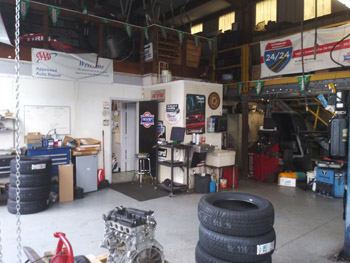All Categories
Featured
Normal engine tune-ups are vital for keeping your vehicle's performance, boosting gas efficiency, and extending its life expectancy. Whether you're an experienced cars and truck owner or a beginner, recognizing the key facets of an engine tune-up can help you keep your automobile running smoothly for many years. Here are some essential tips to lead you with the procedure.
- Adjustment the Spark Plugs. Ignition system are tiny but mighty components that play a critical function in igniting the fuel-air mix in your engine. With time, they can break or come to be fouled, resulting in poor engine efficiency, decreased gas efficiency, and hard beginnings.
Throughout a tune-up, evaluate your trigger plugs for wear and change them as needed. For the majority of lorries, ignition system need to be replaced every 30,000 to 100,000 miles, relying on the type and material. Fresh stimulate plugs guarantee reliable combustion and smoother engine procedure.
- Evaluate and Replace the Air Filter. The air filter is your engine's first line of defense against dirt, particles, and various other impurities. A blocked or unclean air filter can limit air movement, triggering your engine to work more difficult and consume even more fuel.
Examine your air filter throughout a tune-up and replace it if it's filthy or previous its advisable solution interval. A clean air filter improves engine efficiency and enhances fuel economy.
- Check the Fuel System. In time, your fuel system can gather dust and carbon deposits, lowering engine efficiency and gas efficiency. Cleaning the fuel injectors and fuel lines during a tune-up aids keep appropriate fuel shipment and burning.
You can use a fuel system cleaner or have a specialist mechanic execute a much more comprehensive cleansing. This step is particularly helpful for older cars or cars and trucks frequently driven in stop-and-go website traffic.
- Check the Belts and Pipes. Belts and hose pipes are important for numerous engine features, such as running the alternator, water pump, and cooling. Throughout a tune-up, check for fractures, fraying, or indications of endure these components.
Replace any kind of worn-out belts and hoses to avoid possible breakdowns. A damaged belt or dripping pipe can result in engine overheating or loss of power, so addressing these problems promptly is crucial.
- Change the Engine Oil and Oil Filter. Engine oil is important for lubing moving parts, decreasing rubbing, and regulating engine temperature. In time, oil becomes contaminated and sheds its effectiveness.
As part of a tune-up, change the engine oil and oil filter. Use the type of oil suggested by your automobile's maker and adhere to the suggested change intervals. Tidy oil keeps your engine running efficiently and protects against early wear.
- Check the Battery and Charging System. A healthy battery is vital for beginning your car and powering its electric systems. During a tune-up, check the battery's voltage and examine the terminals for rust. Tidy the terminals if needed and guarantee a safe and secure connection.
Additionally, examination the generator and billing system to guarantee your battery stays charged throughout procedure. If your battery is weak or old, consider replacing it to stay clear of unanticipated break downs.
- Flush and Replenish the Coolant. The cooling system regulates your engine's temperature level, stopping it from overheating. Old or contaminated coolant can shed its efficiency, resulting in potential engine damages.
Throughout a tune-up, purge the old coolant and change it with a fresh combination. Additionally, examine the radiator, thermostat, and hose pipes for leakages or damages. Keeping the air conditioning system in good problem guarantees your engine runs at the right temperature.

- Address Caution Lights and Unusual Symptoms. Modern cars are furnished with analysis systems that inform you to potential concerns with control panel caution lights. If your check engine light or any kind of various other alerting indications get on, resolve them throughout your tune-up.
Furthermore, take note of unusual signs such as weird noises, harsh idling, or decreased fuel efficiency. An expert technician can diagnose and settle these problems during the tune-up process.
- Don't Fail To Remember the Exhaust System. Your auto's exhaust system eliminates harmful gases from the engine and makes certain proper exhausts. Inspect the exhaust system for leakages, corrosion, or damages during a tune-up. A defective exhaust system can impact engine performance and bring about ecological and safety concerns.
- Usage High-Quality Parts and Fluids. When changing parts or topping off fluids throughout a tune-up, constantly opt for top quality products that satisfy your car's specs. Utilizing below average parts or incorrect liquids can adversely affect your engine's efficiency and durability.
Final Thought: Normal Tune-Ups Are Key to Engine Health. Taking the time to tune up your engine guarantees it operates successfully, conserves fuel, and minimizes the risk of malfunctions. Whether you do these jobs on your own or count on a trusted mechanic, regular tune-ups are a financial investment in your car's integrity and long life. Comply with these pointers, and you'll take pleasure in a smoother, much more trustworthy trip for years to find.
Latest Posts
Recognizing Roofing Warranties: What Homeowners Must Know
Enjoy the Flavors of Yesterday's Tavern
Discover Top Vision Solutions in Panama City, FL – Eye Center South Specialists
